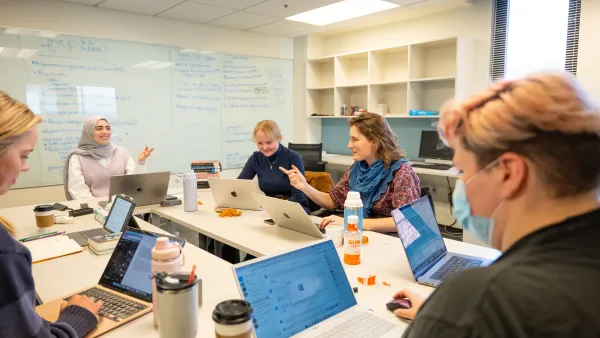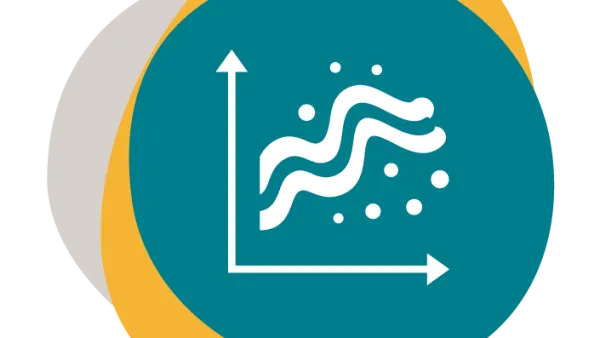Washington University faculty engage in research so innovative that it often demands specialized tools that don’t yet exist.
As part of its mission to foster groundbreaking, data-driven research, the Transdisciplinary Institute in Applied Data Sciences (TRIADS) has formed its own software engineering team to help connect faculty with custom solutions to meet their research needs.
WashU Professor of Political Science Dino P. Christenson approached the team in search of a sophisticated tool to help draw connections between people’s web browsing behavior and political opinions, while providing ironclad privacy protection for users. The resulting Online Privacy-Protected Synthesizer is a simple plugin that users can install in their web browser, which will then deliver a treasure trove of browsing data to Christenson and his research partners at Boston University.
“Our team had the great pleasure of working with software engineer Jessie Walker, who helped us turn the basics of an app into a polished plugin for multiple browsers,” Christenson said. “Thanks to TRIADS and Jessie’s quick and excellent work—and additional funding from the Weidenbaum Center—we’re ready for preliminary data collection and a major grant proposal in the near future.”
Walker and the TRIADS software team’s work requires a great deal of nimble thinking, building collaborations with faculty from multiple fields of study and developing solutions to supercharge their research.
“We view our role not just as technical support providers but as strategic partners who help faculty achieve their research goals,” Walker said. “By offering personalized guidance and solutions, we aim to facilitate breakthroughs in their research and contribute to their success.”
TRIADS software engineers don’t need to possess the expertise level of their faculty collaborators to help drive innovative research. Instead, the role demands the ability to ask the right questions and listen to the resulting answers critically.
Nan Lin, a professor in WashU’s new Department of Statistics and Data Science, connected with TRIADS software engineer Greg Porter to help implement a new algorithm for quantile regression analysis. While Porter isn’t an expert in quantile regression, he knows how to code. And when you’re crunching numbers at the level of Lin and his team, you need a tool built to handle the strain.
“Greg’s expertise and guidance were instrumental in achieving our goals, and we are truly grateful for his contributions,” Lin said. “Throughout the project, his insights and recommendations significantly enhanced our understanding, particularly in identifying areas for parallelization and optimizing code performance.”
The TRIADS software engineering team also offers consultations and technical guidance for WashU faculty. To learn more and schedule a meeting, visit the TRIADS website.



